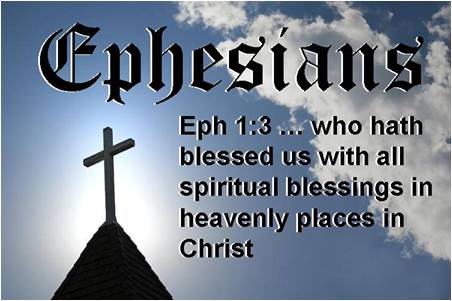 Ephesians is a “Prison Epistle,” along with Philippians, Colossians, and Philemon (see Eph 3:1, Eph 4:1, and Eph 6:20). Written by Paul from Rome, the epistle expands on themes in Colossians, much as Romans does to Galatians. Whereas Colossians develops the all-sufficiency of Christ to the Church, Ephesians shows the blessings of that “fullness” enjoyed by the members of God’s family. The idea of unity resulting from reconciliation runs strong through the book (Eph 1:9-10; Eph 2:16-18; Eph 3:4-6; Eph 4:3-6; Eph 5:30-32; Eph 6:18-20). It is possible that the epistle was actually a circular letter to the churches of Asia. Paul’s goal is to inform the saints of their privileged status and exhort them to live in a way worthy of their standing.
Ephesians is a “Prison Epistle,” along with Philippians, Colossians, and Philemon (see Eph 3:1, Eph 4:1, and Eph 6:20). Written by Paul from Rome, the epistle expands on themes in Colossians, much as Romans does to Galatians. Whereas Colossians develops the all-sufficiency of Christ to the Church, Ephesians shows the blessings of that “fullness” enjoyed by the members of God’s family. The idea of unity resulting from reconciliation runs strong through the book (Eph 1:9-10; Eph 2:16-18; Eph 3:4-6; Eph 4:3-6; Eph 5:30-32; Eph 6:18-20). It is possible that the epistle was actually a circular letter to the churches of Asia. Paul’s goal is to inform the saints of their privileged status and exhort them to live in a way worthy of their standing.
Gene Cunningham - December 8, 2023
Christmas: The Confirmation of Prophecy

Scripture References: Genesis 49:10, Job 19:25-26, Genesis 3:15, Zechariah 12:10, Isaiah 53:3-6, Matthew 2:23, Isaiah 9:6, Isaiah 7:14, Matthew 1:23
From Series: "Christmas 2023"
People often ask how we can know that the Bible is the inspired Word of God. My answer is always the same, “Look at the record of the prophets.” It is reasonably certain that at least 25% of our Bible is made up of prophecy, while some suggest as much as 60% or more. There are many passages that have prophetic shadows and implications that are not specifically considered prophecies. Let’s take the words of Zacharias as a challenge to reflect on just a few of the prophecies concerning the coming and incarnation of the Lord Jesus Christ.

